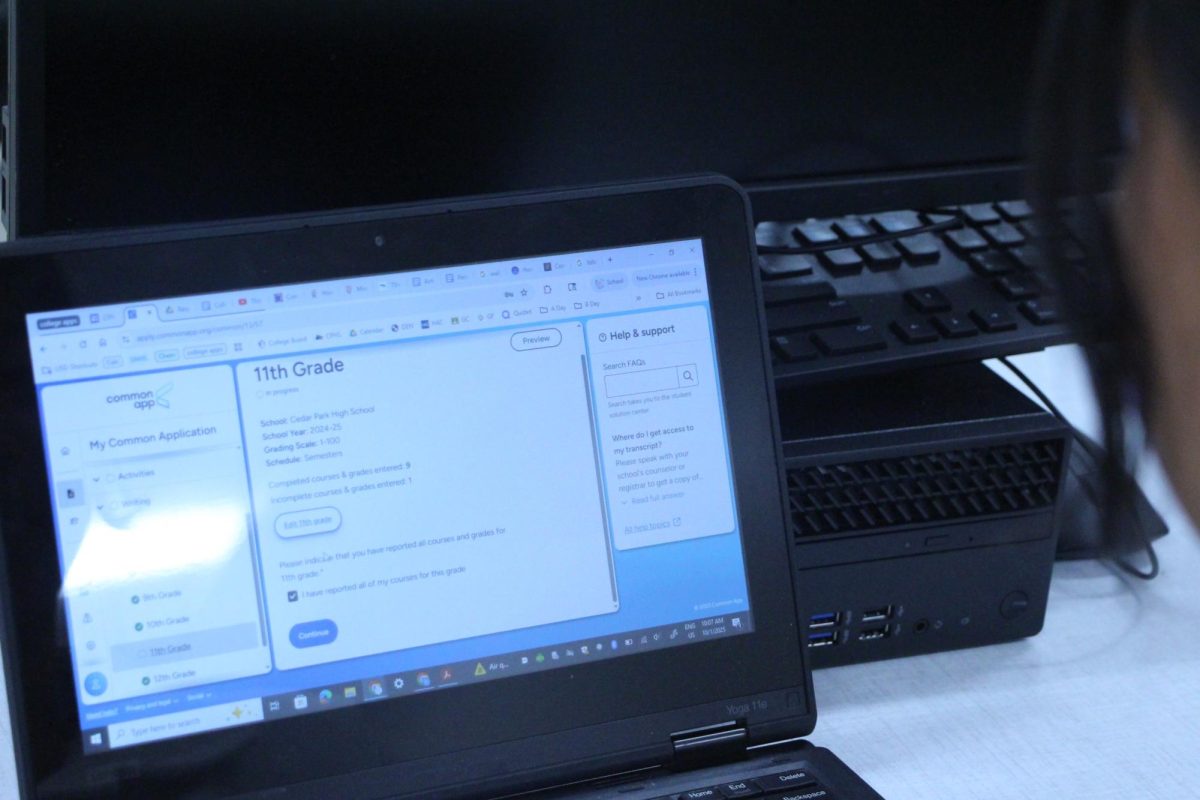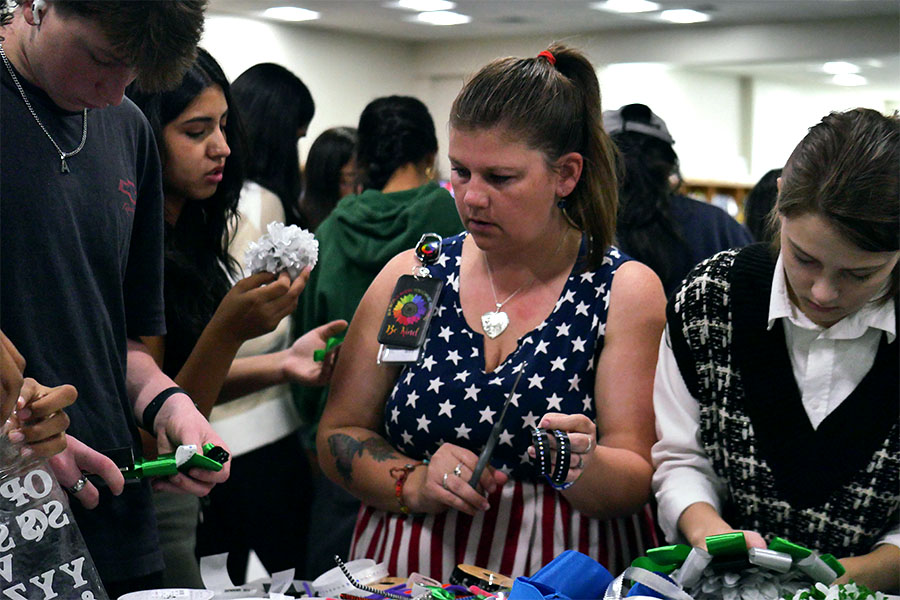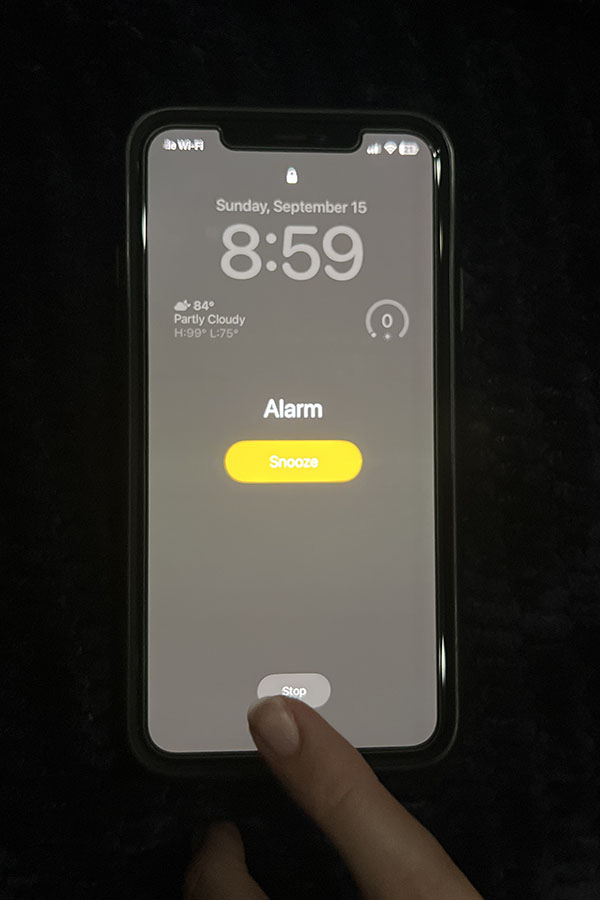Students are facing the consequences of sleep deprivation, with negative effects on student’s academic performance and mental health. As sleep continues to be overlooked, the importance of getting adequate rest becomes more crucial for maintaining focus, managing stress and overall well-being. Lack of sleep impacts students in various ways, making it essential to prioritize sleep for the success of the school year.
A significant number of adolescents need to acquire the recommended eight to ten hours of sleep, which influences their academic performance and emotional well-being. Experts at Better Health emphasize the importance of adequate rest for focus, emotional stability and overall success, urging students to adopt healthier sleep habits despite their busy lives.
“We have entered into a place where survival mode has almost become normal,” counselor Brittany Hernandez said. “ If I can survive four hours of sleep, then technically four hours of sleep is all I need.”
Getting an adequate amount of sleep is crucial to the development of teenager’s minds and bodies. Most teenagers will only get six and seven and a half hours per night, because hormones during teenage years shift student’s internal clock two hours forward, making them tired later than usual, according to Better Health.
“On weekdays at most, I get seven hours of sleep,” sophomore Cassie Rico said. “I wake up at six a.m. and go to sleep around maybe 11 or 12 depending on how much homework I have noticed the less sleep I get the more my grades go down because my focus suffers from lack of sleep.”
Based on the article from Nationwide Children’s on Sleep in Adolescence, research explains that teenagers who get less sleep are more apt to obtain poor grades in the area of learning, fall asleep in educational classes and have more tardiness and absences than normal.
“Less sleep would probably just affect my focus in class,” senior Emlee Yonga said. “I’d find myself falling asleep, especially in math class when I need to be the most focused, but instead I’m the most tired.”
The National Sleep Foundation voices the critical connection between sleep and mental health. Adequate sleep helps with concentration, retaining information, problem-solving and decision-making. Without these skills, students will have trouble coping with stress and evolving in their physical, social and emotional worlds, which can have long-lasting effects on mental health, according to The National Sleep Foundation.
“If we’re not getting a full amount of sleep, it’s like you’re trying to operate on an empty tank of gas and you can only go so far until something bad happens,” Hernandez said. “I think that’s how we need to think about it with our feelings and our thoughts and anxiety. Can I go through an entire day, eight hours of school, or if a stressful situation presented itself, do I have a full tank to make it through from point A to point B? Or am I running off a ¼ of a tank because I didn’t get enough [sleep] to refuel myself for the next day?”
As mentioned in the National Library of Medicine, getting less sleep was connected with a 55% rise in the finding of mood deficits, and some of the most common emotions connected to sleep duration are those of positive moods followed by anger, depression and anxiety.
“My mood is very dependent on my sleep,” Yonga said. “I’ve found I need at least six hours to get through the day. I’m generally in a better mood and participate more when I sleep better. Otherwise, I’m pretty grumpy and doze off more.”
In the article written by sleep coach Sharon Brandwein on Sleepopolis, participating in extracurricular activities can have positive impacts on academic achievement and social skills, but can also lead to overscheduling, being overly busy can cause teenagers to not get their right amount of sleep. This causes poor academic performance, irritability, frequent illnesses and lack of social time.
“For me, if I don’t get enough sleep I can definitely be less active throughout the day or I feel irritated,” Rico said. “I’m normally a very upbeat and energetic person and being in a sport that’s constantly using up all that energy working out, I’ve realized if I get no sleep on those nights, not only am I feeling lazy, but it makes it really hard for me to carry out through practice without wanting to stop midway, or feel like I don’t want to be there at all.”






![As her hair blows in the wind, senior Brianna Grandow runs the varsity girls 5K at the cross country district meet last Thursday. Grandow finished fourth in the event and led the varsity girls to regionals with a third place placement as a team. “I’m very excited [to go to regionals],” Grandow said. “I’m excited to race in Corpus Christi, and we get to go to the beach, so that’s really awesome.” Photo by Addison Bruce](https://cphswolfpack.com/wp-content/uploads/2025/10/brianna.jpg)


![Broadcast, yearbook and newspaper combined for 66 Interscholastic League Press Conference awards this year. Yearbook won 43, newspaper won 14 and broadcast took home nine. “I think [the ILPC awards] are a great way to give the kids some acknowledgement for all of their hard work,” newspaper and yearbook adviser Paige Hert said. “They typically spend the year covering everyone else’s big moments, so it’s really cool for them to be celebrated so many times and in so many different ways.”](https://cphswolfpack.com/wp-content/uploads/2025/05/edited-ILPC.jpg)





![Sitting with her friend senior Sohpia Struve at last year’s Austin City Limits Festival, senior Ava Zuniga poses for a picture under a pavilion. They are frequent attendees at ACL, an annual music festival at Zilker Park. “I would recommend seeing a bunch of people,” Zuniga said. “This past year, we camped out for Chappell [Roan] for a really long time. I think the whole point of ACL, [which] is a lot of fun, is that you can go see so many different people, even if you don’t know them. So by camping by one person, it really limits yourself from being able to go see a bunch of people.” Photo courtesy of Ava Zuniga](https://cphswolfpack.com/wp-content/uploads/2025/10/EE9E9484-FE6F-4AA0-B5F5-0C177AB32841-1200x857.jpeg)
![Looking down at his racket, junior Hasun Nguyen hits the green tennis ball. Hasun has played tennis since he was 9 years old, and he is on the varsity team. "I feel like it’s not really appreciated in America as much, but [tennis] is a really competitive and mentally challenging sport,” Nguyen said. “I’m really level-headed and can keep my cool during a match, and that helps me play a bit better under pressure.” Photo by Kyra Cox](https://cphswolfpack.com/wp-content/uploads/2025/09/hasun.jpg)

![Bringing her arm over her head and taking a quick breath, junior Lauren Lucas swims the final laps of the 500 freestyle at the regionals swimming competition on date. Lucas broke the school’s 18-year-old record for the 500 freestyle at regionals and again at state with a time of 4:58.63. “I’d had my eye on that 500 record since my freshman year, so I was really excited to see if I could get it at regionals or districts,” Lucas said. “ State is always a really fun experience and medaling for the first time was really great. It was a very very tight race, [so] I was a bit surprised [that I medaled]. [There were] a lot of fast girls at the meet in general, [and] it was like a dogfight back and forth, back and forth.” Photo by Kaydence Wilkinson](https://cphswolfpack.com/wp-content/uploads/2025/03/Kaydence-2.7-23-edit-2.jpg)
![As the support team sits and poses for a photo in the cafeteria with the counseling team they eagerly wait to start their day. "We [all] seem to be a team, I get up every day and there's days where I don't want to go to work today, but I'm thankful that I have a job and I'm blessed to have what I have," Christopherson said. Photo Courtesy of Julie Weltens.](https://cphswolfpack.com/wp-content/uploads/2025/01/AF9E8470-10D7-4C91-BF28-EC8F86BAB66C-1200x852.jpeg)
![Jumping off the ground, senior linebacker Bennett Patton snatches the ball out of the air for an interception at Thursday’s game against Chaparral. Patton had two interceptions in the 56-14 victory, tying the school record for interceptions in a game. “I was just playing the game,” Patton said. “[I’m] going to go into next week, forget about it and stay humble.” Photo by Harper Chapman](https://cphswolfpack.com/wp-content/uploads/2025/09/bennett-interception.jpg)
















Judith J Juszak • Feb 2, 2025 at 3:03 pm
Very well done. So proud of my granddaughter. Keep up the good work